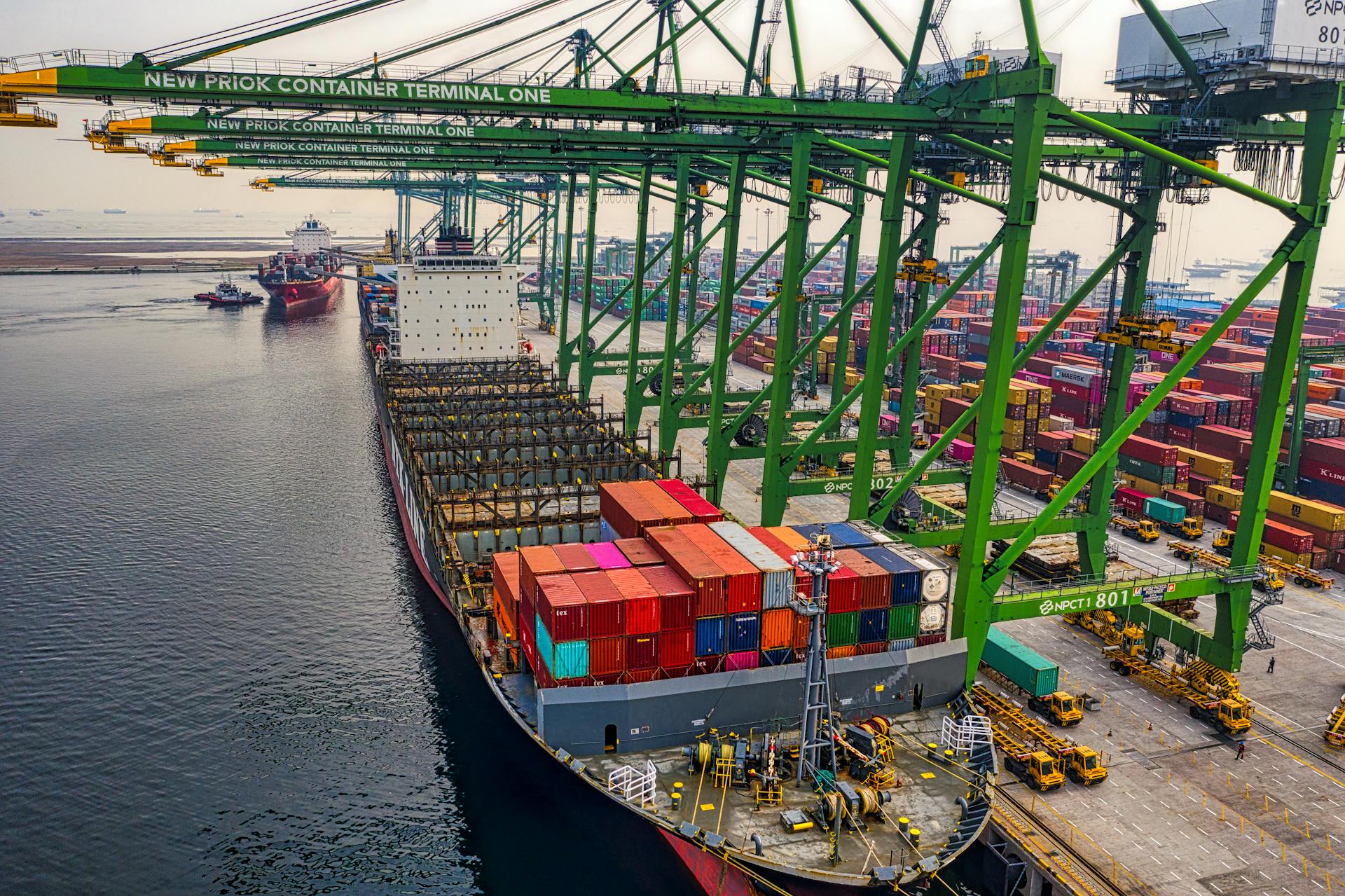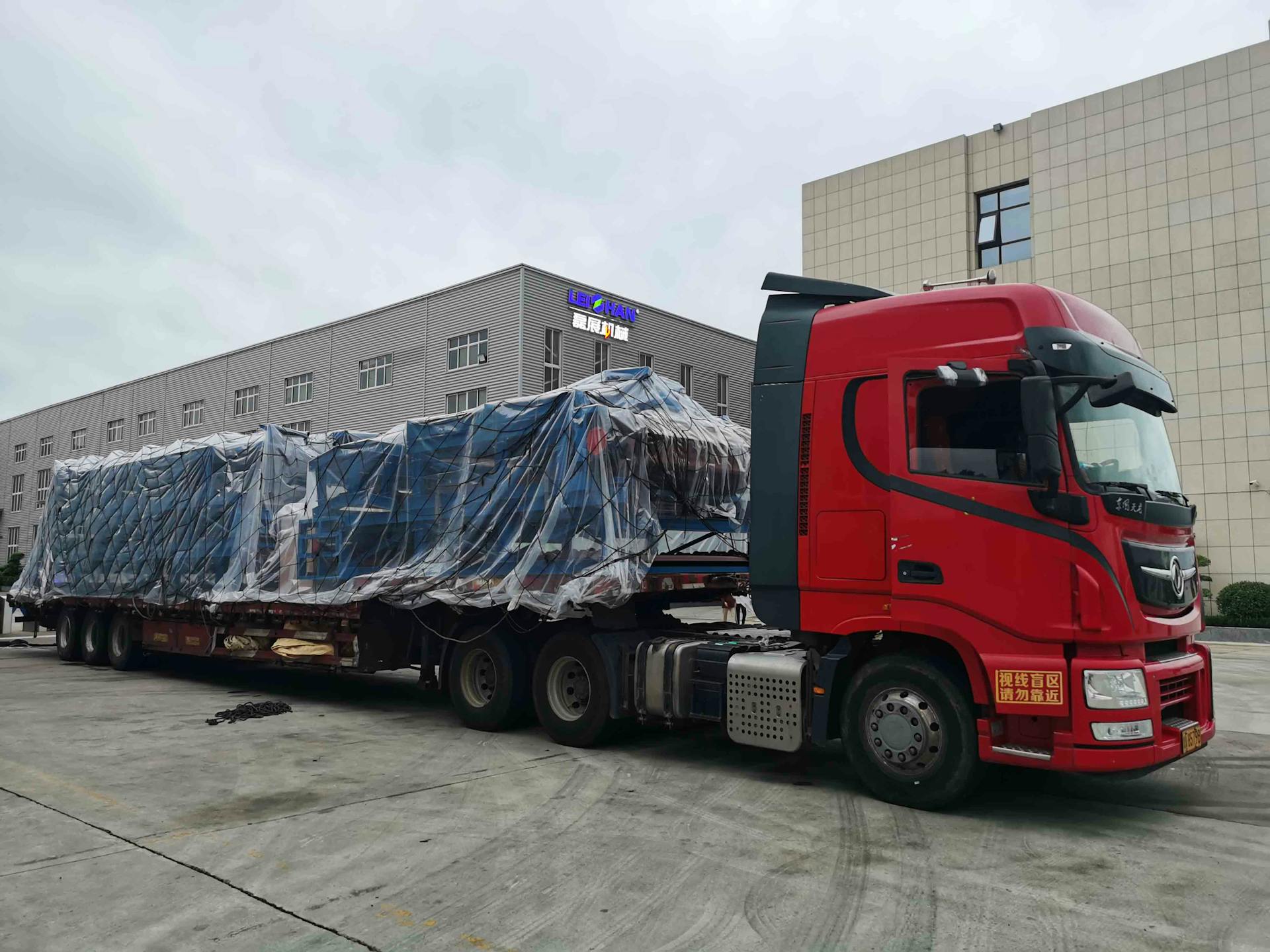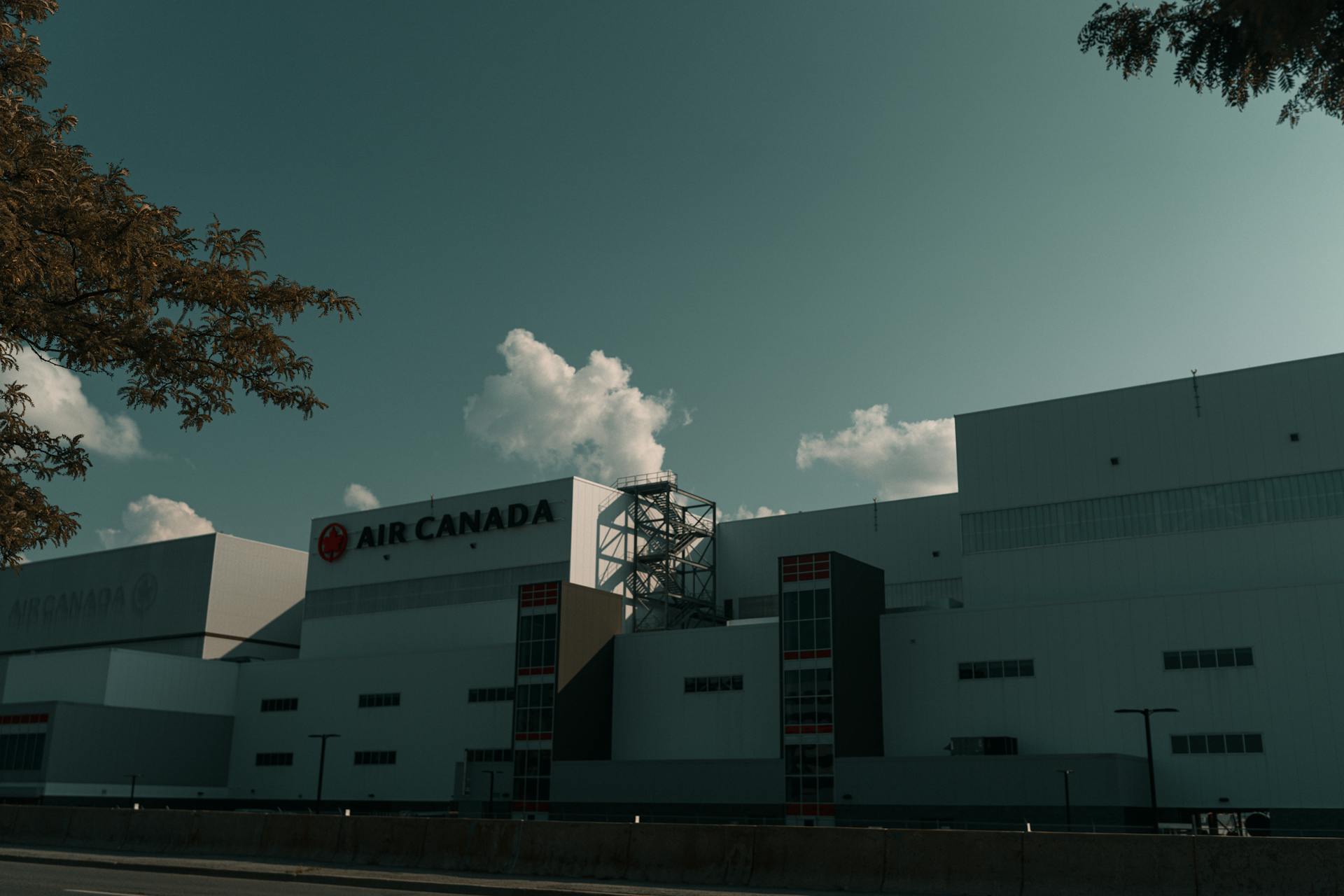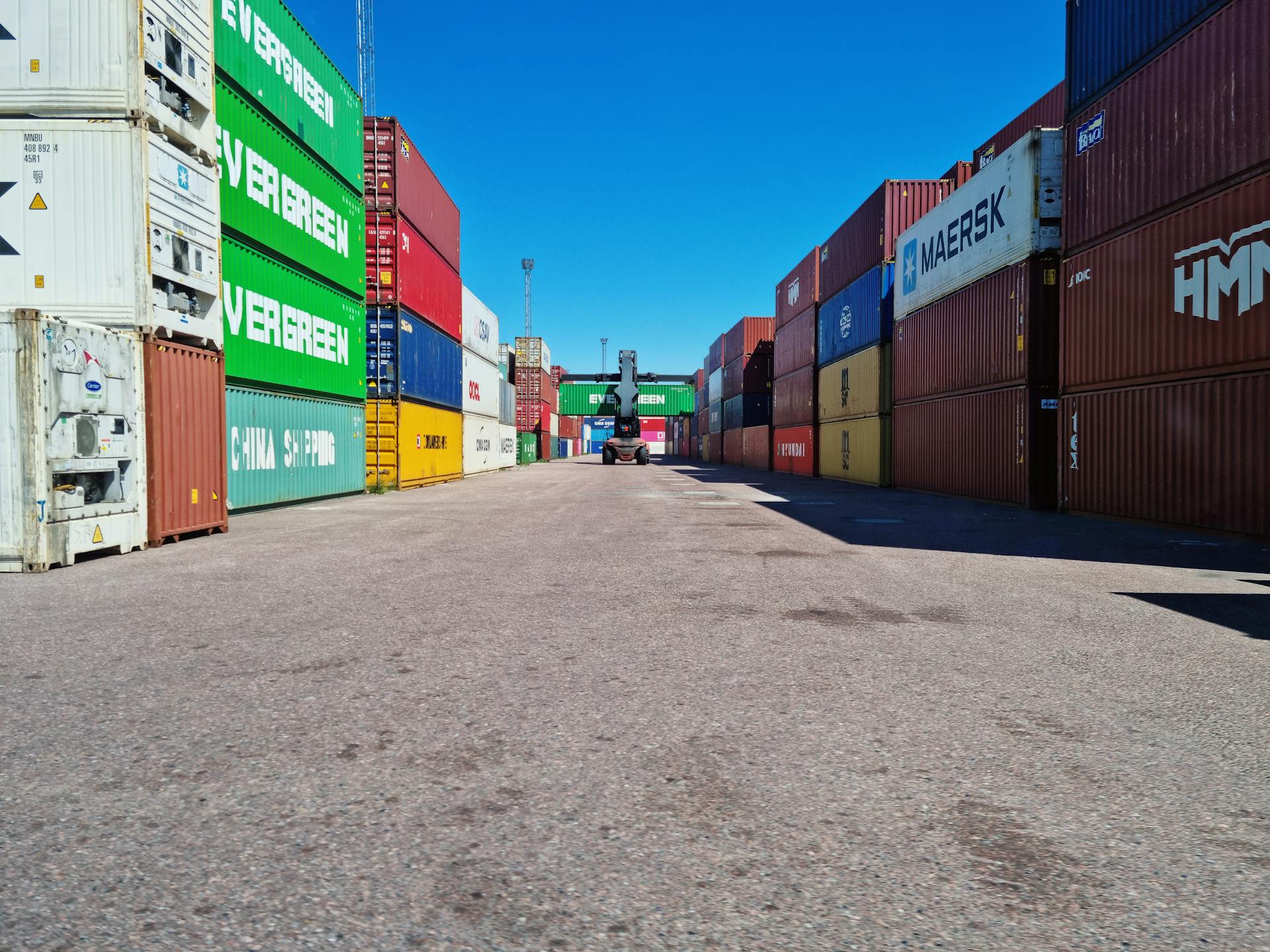
Transporting high value cargo requires a secure and efficient process to prevent loss or damage.
The International Air Transport Association (IATA) recommends using tamper-evident packaging to protect valuable goods during transportation.
A typical high value cargo transportation process involves multiple stakeholders, including shippers, carriers, and customs officials.
To ensure smooth transportation, it's essential to have a clear understanding of the cargo's value, weight, and dimensions.
Accurate documentation is also crucial, as it helps prevent delays and discrepancies during customs clearance.
Transportation Process
Transportation providers will ask you a series of questions to ensure your high-value cargo is handled properly.
To get the best service, be prepared to answer questions about your cargo, such as whether it's new or used, and if it's crated.
Your declared cargo value is also important, as it helps the transportation company determine the level of service and security required.
The transportation company will also ask about ownership, shipping frequency, and securement plans to ensure your cargo is handled with care.
You'll also be asked about the cargo's sensitivity to water, temperature, or dirt, as well as its dimensions and recommended trailer type.
Your loading and offloading arrangements will also be discussed to ensure a smooth transportation process.
Here's a list of questions transportation providers may ask:
- Is this cargo new or used?
- Is this cargo crated?
- What is your declared cargo value?
- Who owns this freight?
- How often do you ship this kind of freight?
- Do you have a securement plan?
- Is this cargo sensitive to water, temperature or dirt?
- What are the dimensions of this cargo?
- Do you have a recommended trailer type?
- What are your loading/offloading arrangements?
Load Preparation
Load Preparation is crucial to ensure a smooth and secure transportation of high-value cargo. Clear communication with customers and carriers is a must to mitigate fraud, including confirmation of truck, trailer, and MC numbers and driver names.
Careful photo documentation of loads pre- and post-transit is also essential. This helps to verify the condition of the cargo and detect any potential damage.
To prepare your high-value cargo for transportation, consider the following steps:
- Verify the condition of the cargo and take photos before loading
- Document the cargo's pre-transit condition, including any special handling requirements
- Take photos of the cargo after transit to verify its condition
What Constitutes a Load?
A high-value load is any shipment that exceeds the industry standard minimum cargo coverage of $100,000. This is the norm in today's market, and it's what transportation providers typically use to group cargo into different tiers.
These tiers are based on the value of the cargo, and they are as follows:
As the value of a shipment increases, transportation providers need to plan accordingly and ask different questions to make sound decisions.
Is This New or Used?
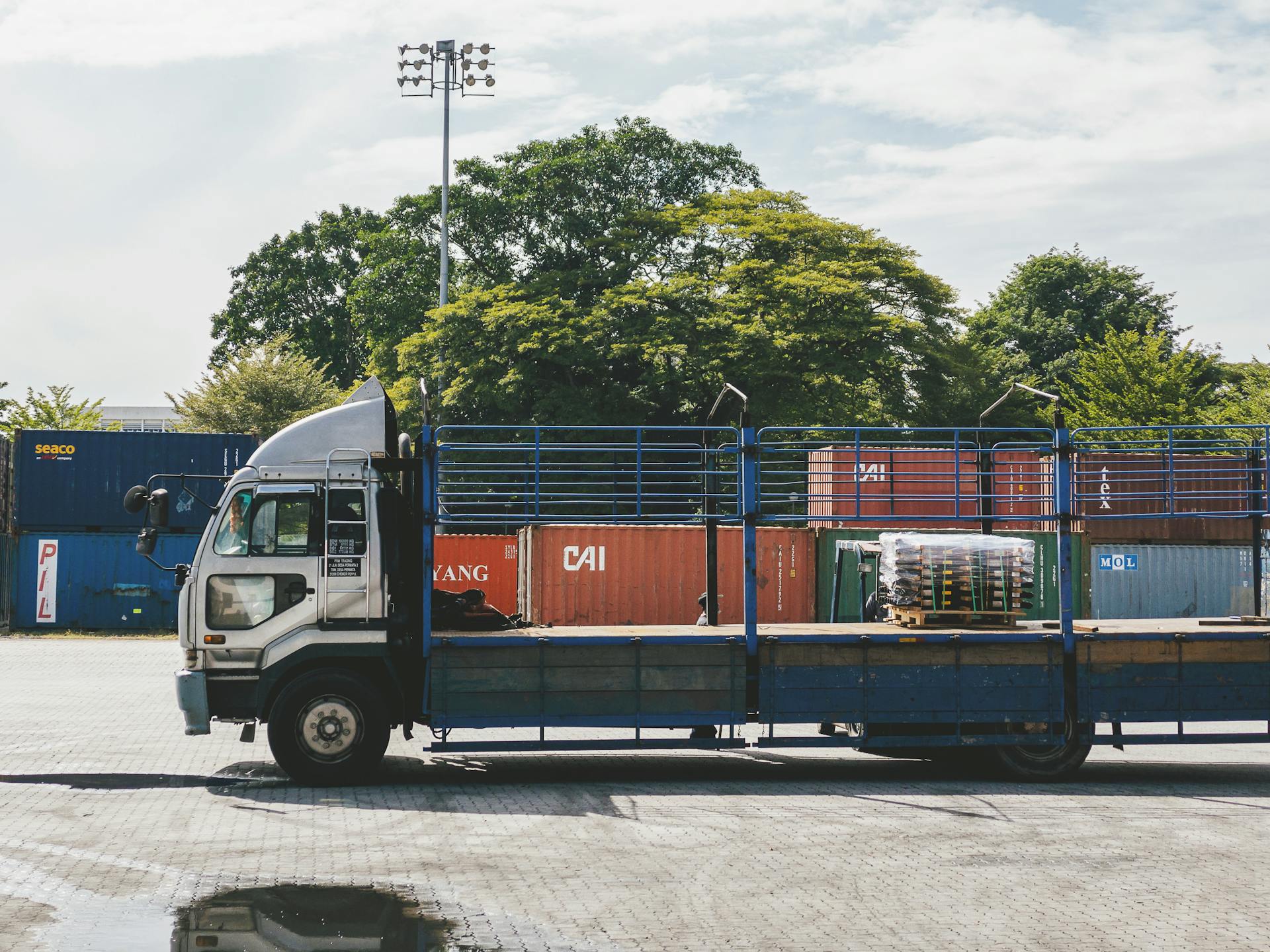
The age of your cargo can make a big difference in how transportation providers handle your shipment. This is especially true for high-value freight.
For new products, it's generally easier to insure the load because its market value is well established. Transportation providers can assume the product is in perfect condition, making the process more straightforward.
The term "used" can be vague, however, and can mean different things depending on the context. Some may describe an item that's been heavily utilized over time, while others might categorize a single operation as "used".
If you categorize your load as "used" or refurbished, be as specific as possible about what that means. This can help prevent misunderstandings and ensure your shipment is handled correctly.
Is This Crated?
Crated freight can be riskier for transportation companies to move because drivers are typically unable to assess the securement method of the commodity.
To ensure safe transportation, it's essential to communicate with your transportation provider about the crating of your cargo.
Crated commodities have a chance of experiencing a 'hard stop' during transit, which can cause securement to fail and send freight forward against the crate.
This can lead to damage or even breakage of the crate itself, causing additional risk and damage.
If you've crated your high-value freight, specify whether your carrier will be allowed to secure over the crate or directly to the crate base itself.
Direct securement to the commodity inside the crate is the preferred method, but this requires portholes on the crate for securements to make direct contact.
Transportation providers will want to verify that the party responsible for crating cargo considered securement and transportation safety.
Shipping and Logistics
Shipping high-value cargo requires careful planning and execution. Heavy Haulers provides dedicated specialists with 15+ years of experience transporting high-value cargo and freight.
Their team handles everything from pick-up to delivery for your valuable goods freight transportation. This ensures that every shipment is transported safely and delivered on time.
You can arrange high-value cargo shipping through just one phone call. Heavy Haulers will provide you with a free, no-obligation quote to transport your high-value freight.
Shipping Frequency
Shipping frequency is a crucial factor in determining the level of oversight and service required for high-value freight shipments. The more frequently you ship high-value goods, the more your provider will understand your needs and be able to tailor their services accordingly.
Moving high-value freight regularly allows shippers to develop tried-and-true systems for protecting, loading and handling these cargoes. This experience translates to better planning and decision-making for your provider.
To illustrate the importance of shipping frequency, consider a shipper that frequently moves cargo valued under $100,000. This is a different scenario than servicing a company that regularly moves $800,000 freight. Your provider will need to administer more oversight in the latter case.
A shipper's frequency of shipping high-value goods also affects the level of specificity and information required from them. Less experienced high-value shippers may need to provide more comprehensive information to their transportation providers.
- For example, they might need to answer questions like: "Is this cargo going to be exposed to highway speeds? Will this be a problem?"
Shipping Nationwide
Shipping Nationwide is all about consistency. Leveraging multimodal solutions within a tactical network is key to providing consistent, year-round service.
Using a combination of transportation modes like trucks, trains, and planes, you can ensure that your packages reach their destination on time. This approach helps to mitigate the risks associated with relying on a single mode of transportation.
A tactical network allows you to adapt to changes in demand and unexpected disruptions, ensuring that your customers receive their shipments as expected. By being prepared for any situation, you can maintain a positive reputation and build trust with your customers.
Why Does Shipping Cost More?
Shipping high-value freight can be a costly endeavor, but it's essential to understand why this is the case.
High-value freight is often more expensive to move than others because these loads require specialized procedures and equipment to ensure their safe transportation.
Moving high-value cargo can be challenging due to its fragile nature, which demands extra care during transit.
These loads are typically far more expensive to move than others.
It's possible to save some money on these shipments with the right procedures in place.
Security and Risk
Many companies that transport high-value cargo have a pre-existing securement plan, which is a diagram of the product being moved, complete with dimensions, potential securement points, and areas where damage could occur during transport.
To ensure your cargo is properly handled, you may be asked to supply a securement plan of your own. This plan should include information about sensitive points that may be damaged during securement, such as edges or corners that require protectors.
Criminals often target high-value cargo when it's left unattended, so it's essential to choose a transportation provider that uses secure and sealed trailers, and considers using 24-hour surveillance equipment if your shipment will need to park for a significant period.
The risk of cargo theft in Europe is a significant concern, with products worth over 172 million euros stolen in 2020. To mitigate this risk, you should work with a professional security team that can help with route planning, anti-kidnapping strategies, and other security measures.
A good security company should provide a customized risk assessment, help with route planning, and offer anti-kidnapping strategies such as armed or unarmed onboard escorts, unmarked escort vehicles, or tracking technology.
Here are some important things to consider when working with a transportation provider:
- Ask about their securement plan and how they will handle sensitive points on your cargo.
- Request documentation that is generic and does not reveal specific information about your shipment or its contents.
- Limit access to sensitive information within your company to reduce the risk of theft or loss.
Proven Processes for Sensitive Data
Having a securement plan in place is crucial for protecting sensitive data during transportation. This plan should include diagrams of the product being moved, with dimensions, potential securement points, and areas where damage could occur.
You should also consider the potential sensitivity of your cargo to external elements like water, temperature, and dirt. If exposure to these elements could cause damage, your transportation provider will need to take steps to mitigate the problem.
When creating a securement plan, it's essential to identify sensitive points on your cargo that may be damaged during securement. These points could include edges, corners, or other areas that are prone to damage.
To ensure the safety of your goods, it's best to work with your provider to formulate a securement plan. This may involve answering questions about potential sensitive points and supplying pictures for your provider to reference.
Here are some key pieces of information to provide about cargo sensitivity:
- Are there any sensitive points that may be damaged during securement?
- Will edge/corner protectors be needed to prevent cargo or securement damage?
- Are there approved securement points?
By providing this information, you can help your transportation provider take the necessary steps to protect your sensitive data during transportation.
Who Owns This?
In some situations, the owner of the cargo isn't directly involved in arranging its transport, especially when freight forwarders, customs brokers, and 3PLs are involved.
This can lead to transportation providers inquiring about the cargo's ownership and seeking indemnification understandings with the actual owner of the goods.
Preventing Potential Crime
Cargo theft is on the rise, especially in Europe where over 172 million euros worth of products were stolen in 2020 alone. This highlights the importance of taking necessary precautions to secure your high-value freight.
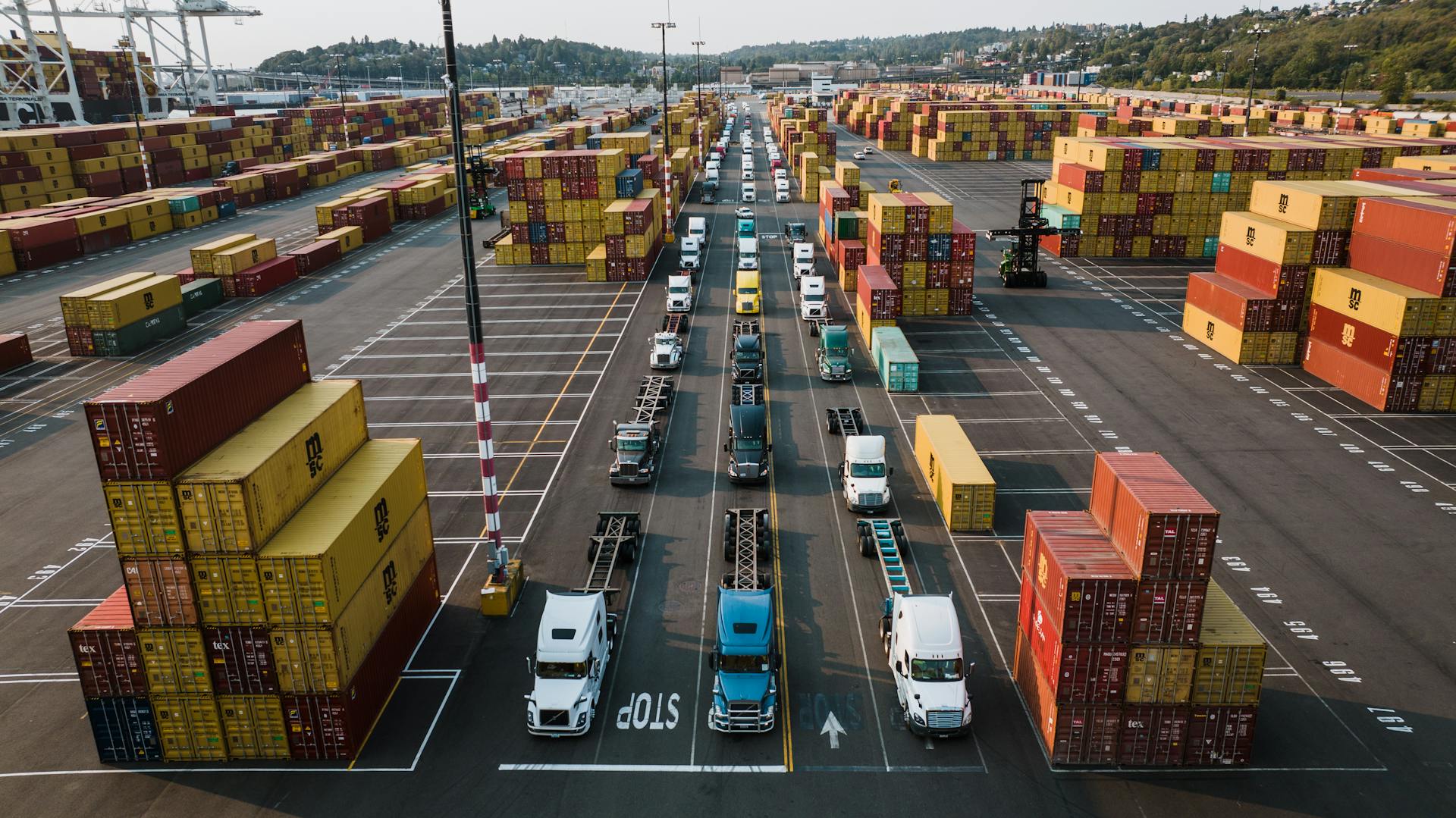
To reduce vulnerability, implement more speed from end to end by using direct routes and expedited services. This means less dwell time and fewer touchpoints, making it harder for potential thieves to target your cargo.
Technology can also help, such as using container tracking and risk analysis tools. Predictive modeling can even help you understand where you might need to have an escort and allocate your security-based resources properly.
To ensure your cargo is properly secured, your carrier should use properly enclosed and sealed trailers. Your materials should also be shrink-wrapped to prevent damage.
If you have a shipment that will need to park for a significant period of time, consider hiring a security team to use 24-hour surveillance equipment.
Here are some key points to consider when preparing your cargo for transport:
- Are there any sensitive points that may be damaged during securement?
- Will edge/corner protectors be needed to prevent cargo or securement damage?
- Are there approved securement points?
Transport and Delivery
Transporting high-value cargo requires careful planning and execution to ensure safe and timely delivery. Heavy Haulers provides expert shipping services for various industries and individuals across the nation.
To transport high-value cargo, transportation companies may ask you questions such as whether the cargo is new or used, if it's crated, and what the declared cargo value is. These queries help make decisions for the handling of your shipment.
A high-value load might also be oversized, requiring specific permits and escorts to move the cargo properly. Your high-value loads are highly visible, and with BWS Logistics, you can save time and minimize stress with their user-friendly customer portal, which includes customizable dashboards and easy shipment search.
Here are some common high-value cargo types that are often transported:
- Construction Equipment
- Mining Equipment
- Aircrafts
- Heavy Machinery
- Building Materials
- Tiny Houses
- Bus Transports
- Container Shipments
- Mobile Homes
- Generators
Transport and Delivery
Heavy Haulers provides quality and affordable high-value shipments, with a team of dedicated specialists having 15+ years of experience transporting high-value cargo and freight.
At Heavy Haulers, we understand your high-value cargo is essential to your business, so we ensure it's delivered safely and on time.
We offer unique solutions for your transportation needs, including local high value goods transport, nationwide high value freight shipping, and custom shipping solutions to fit your needs.
Our comprehensive high-value cargo transport services include high value cargo transport, high value cargo shipping, and how to transport high value cargo.
We take the time to provide transports with care and precision, ensuring your high-value cargo reaches its destination safely.
We provide expert shipping services for various industries and individuals across the nation.
Here are some common high-value cargo we transport:
• Construction Equipment
• Mining Equipment
• Aircrafts
• Heavy Machinery
• Building Materials
• Tiny Houses
• Bus Transports
• Container Shipments
• Mobile Homes
• Generators
We also provide active freight tracking, mitigating risk and alleviating stress with sensor tracking, proactive shipment monitoring, and 24/7 access to our customer portal.
Your declared cargo value is crucial, as it helps transportation providers uncover how much risk they're taking on by transporting your freight.
A good transportation provider will drill deeper to ensure they understand the actual cargo replacement value and will consistently share this information with you to limit the risk of being underinsured.
If you're transporting cargo across borders, look for a provider that will work with you to create a customized risk assessment, help with route planning, and provide anti-kidnapping strategies.
We also provide a user-friendly customer portal, customizable dashboard, easy shipment search, dock-to-dock load visibility, centralized document management, and fast, simple communication.
Our transportation security services include anti-kidnapping strategies, tracking technology, box trailers, anti-slash curtains, and fixed parking instructions.
Transporting in Germany
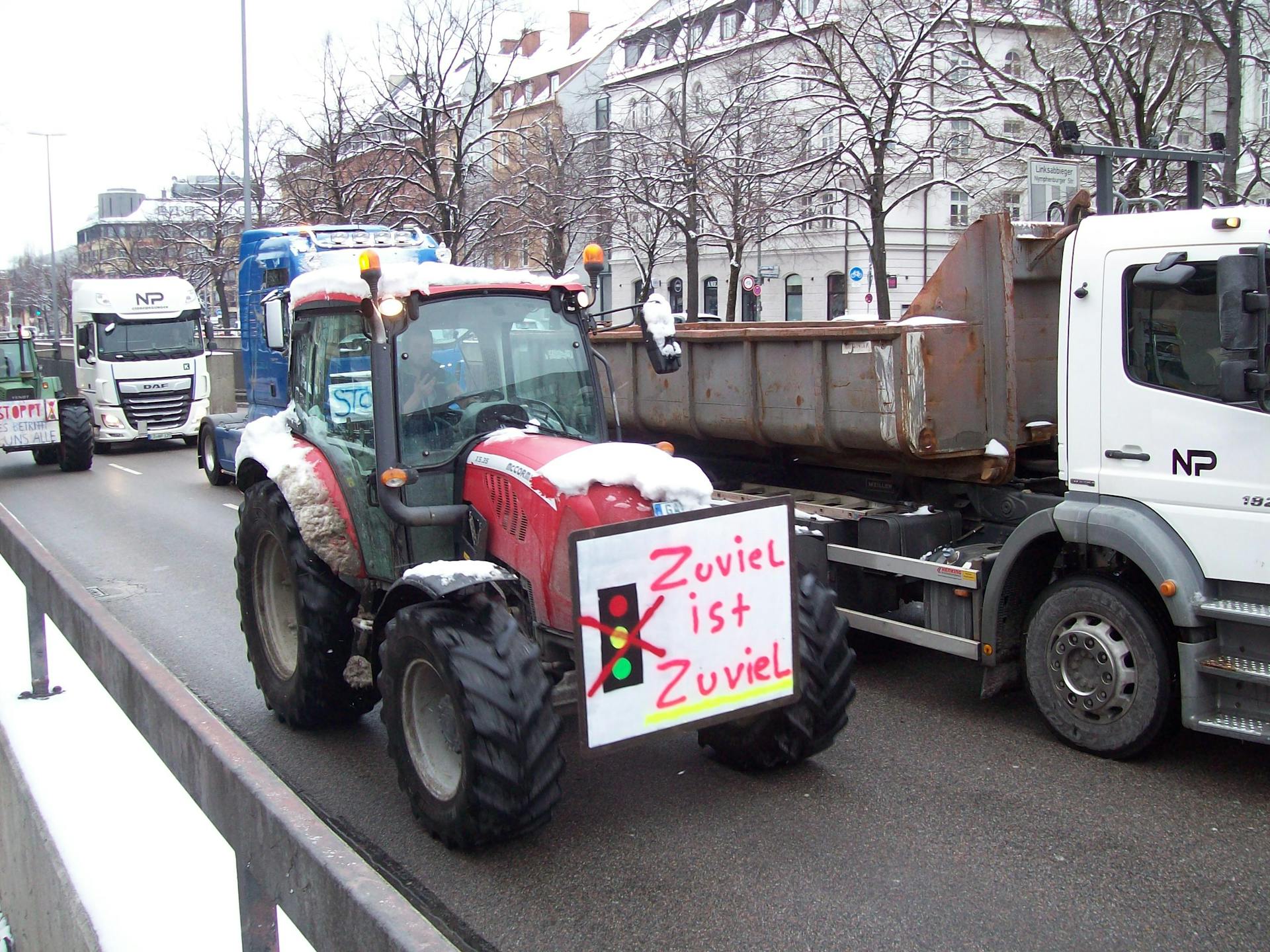
Transporting in Germany can be a challenge due to the high levels of cargo theft in Europe. Germany is a major transit country in the European Union, with goods worth billions of euros moved on German roads every day.
Around 70% of losses within the supply chain are reportedly due to insider knowledge, which is a significant concern for companies shipping high-value cargo. This highlights the importance of secure transportation practices.
Germany's high levels of industrial production and economic growth contribute to the volume of high-value goods being transported, making it an attractive target for cargo thieves. This is a key factor to consider when shipping goods to or from Germany.
Crime organizations are increasingly targeting goods in transit, adding another layer of complexity to transportation in Germany.
Insurance and Coverage
You need to know the extent of the liability coverage you have, so carefully check your insurance coverage.
If your liability policy only covers $300,000 and you're moving something with a value of $500,000, you'll have to make up for the gap.
You need to understand any exclusions fully, so it's impossible to develop a truly comprehensive security plan if you don't know what your exposure could be.
Best Practices and Solutions

Securing high-value goods requires a layered approach, combining planning, processes, security monitoring, and packaging to mitigate risks.
To start, map your supply chain to identify weaknesses and risk areas. This will help you assess the processes, assets, and facilities making up your network.
A professional security provider can help you implement the best tools to mitigate risks, and monitor and measure your procedures to ensure optimal outcomes.
Transporting high-value freight can be complex, and working with a third-party logistics company can be beneficial in understanding risks and security needs.
Current global issues like inflation and supply chain challenges may lead to increased cargo theft, making it essential to work with a reputable security company and have a plan for logistics.
Transport Security Services
Transport security services are a crucial aspect of high value cargo transportation. They help mitigate the risks associated with transporting valuable goods.
A good security company should work with you to create a customized risk assessment to identify potential threats and develop tailored plans to mitigate them. This is a collaborative process that requires open communication and a willingness to share sensitive information.
Transport security professionals should help with route planning to identify potential security risks and develop pre-planned security measures. This includes selecting the most secure routes and parking locations.
Anti-kidnapping strategies are also an essential part of transport security services. This can include armed or unarmed onboard escorts, unmarked escort vehicles, or tracking technology.
Other security measures that can be implemented include box trailers or anti-slash curtains, and fixed parking instructions. The goal is to disguise the fact that the shipment is valuable, so documentation should be generic and not reveal sensitive information about the shipper or the cargo.
A shipper should also limit access to sensitive information within their company to prevent insider threats. This includes training and credentialing guards for frontline roles.
Here are some key features to look for in a transport security service:
- Customized risk assessment
- Route planning and security measures
- Anti-kidnapping strategies
- Box trailers or anti-slash curtains
- Fixed parking instructions
- Generic documentation
- Trained and credentialed guards
By working with a reputable transport security service, you can minimize the risks associated with high value cargo transportation and ensure that your goods arrive safely at their destination.
Carrier Selection
Choosing a reputable carrier is crucial for transporting high-value cargo. A good starting point is to ask the broker about their requirements for insurance coverage and safety scores.
You want to ensure that the carrier has a good safety record and adequate insurance coverage to protect your valuable shipment. This will give you peace of mind knowing that your cargo is in good hands.
The carrier should also have familiarity with your industry and experience transporting similar shipments. This will help them understand the specific needs of your cargo and handle it with care.
Here are some questions to ask the broker to vet the carrier:
- What are the carrier's safety scores?
- What is their insurance coverage?
- Do they have experience transporting similar shipments in your industry?
By asking these questions, you can get a better sense of the carrier's capabilities and make an informed decision about who to trust with your high-value cargo.
Oversized and Heavy Haul
Oversized and heavy hauls can be a challenge, especially when transporting high-value cargo. You may need to secure specific permits, as oversized loads can be subject to additional regulations.
One thing to consider is that oversized loads may require escorts, which can add to the overall cost of the shipment. To avoid any last-minute decisions, it's best to hammer out the details of the shipment ahead of time.
According to Heavy Haulers, a high-value load might also be oversized, requiring additional permits and escorts. They offer a range of services, including oversized and heavy haul trucking services, to ensure safe and timely delivery of your cargo.
Here are some of the heavy haul trucking services they provide:
- Aerospace Heavy Equipment Transport
- Blanket Wrapped Freight Transport
- Detachable Trailer Transport
- Heavy Snow Equipment Transport
- Heavy Hauling Calculator
- Heavy Lift Cargo
- Out of Gauge Cargo Shipping
- Pilot Car and Escort Vehicles by State
- Wide Load Transport
Shipping with Heavy Haulers
Shipping with Heavy Haulers is a great option for oversized and heavy haul needs. They offer a free, no-obligation quote for high-value cargo shipping, which can be arranged with just one phone call.
Their team of logistics experts handle everything from pick-up to delivery, providing a hassle-free experience. Heavy Haulers is licensed, bonded, and insured for high-value shipping, ensuring your precious cargo has safe transportation.
You can choose from a variety of services, including local high-value goods transport, nationwide high-value freight shipping, and custom shipping solutions. They also offer RO/RO Shipping Services and international transport.
Here are some of the services Heavy Haulers provides:
- Local high value goods transport
- Nationwide high value freight shipping
- Custom shipping solutions to fit your needs
- RO/RO Shipping Services
- International Transport
Their team of dedicated specialists has 15+ years of experience transporting high-value cargo and freight, giving you peace of mind.
Common Heavy Haul Trucking Services
We provide a wide range of heavy haul trucking services to cater to various industries and needs. From transporting heavy construction equipment to oversized cargo, we've got you covered.
Aerospace heavy equipment transport is one of our specialties, ensuring that sensitive and valuable equipment reaches its destination safely. We also offer agricultural industry transport, which includes transporting heavy machinery and equipment to farms and agricultural sites.
We have a variety of transportation options, including blanket wrapped freight transport, bulk heavy equipment shipping, and cargo handling equipment. Our team is experienced in handling cargo vans for small shipments, as well as carrier lane equipment shipping and cartage shipping services.
We're not limited to just construction equipment transport, but also offer delivery assistance services, detachable trailer transport, and drayage equipment shipping. Our services also include expedited freight transport, fifth (5th) wheel transport services, and forestry equipment transport.
Here are some of the common heavy haul trucking services we provide:
- Aerospace Heavy Equipment Transport
- Agricultural Industry Transport
- Blanket Wrapped Freight Transport
- Bulk Heavy Equipment Shipping
- Cargo Handling Equipment
- Cargo Vans for Small Shipments
- Carrier Lane Equipment Shipping
- Cartage Shipping Services
- Construction Equipment Transport
- Delivery Assistance Services
- Detachable Trailer Transport
- Drayage Equipment Shipping
- Expedited Freight Transport
- Fifth (5th) Wheel Transport Services
- Forestry Equipment Transport
- Freight of All Kinds Shipping
- Freight Forwarding
- Freight Terminal Services
- Goverment Equipment Shipping
- Ground Freight Hauling
- Heavy Cargo Weights
- Heavy Haul Brokers
- Heavy Hauling Calculator
- Heavy Lift Cargo
- Heavy Snow Equipment Transport
- High Value Cargo Transport
- Hurricane Equipment Shipping
- Industrial Equipment Hauling
- Interstate Freight Shipping
- Liftgate Services for Heavy Equipment
- Limited Access Delivery for Heavy Equipment
- Load Tracking Services
- Machinery Shipping Services
- Military Freight Services
- Millwright Services
- Neo Bulk Cargo
- North American Heavy Hauling Services
- On-Dock Rail Shipping
- Out of Gauge Cargo Shipping
- Pilot Car and Escort Vehicles by State
- Project Cargo Shipping
- Roll On / Roll Off Transport
- Straight Trucking Shipping
- Trade Show Shipping
- Wide Load Transport
10 Years Experience
We've got 10 years of high-value freight transport experience under our belt, which means we've seen it all and know how to handle even the most complex shipments.
Our team has handled everything from Formula E cars to medical equipment, and we understand the unique challenges that come with transporting high-value items.
You can count on us to be on call 24/7 to handle any surprises that come your way, because we know that unexpected issues can arise at any time.
Our tech-driven approach provides enhanced visibility, security, and efficiency, giving you peace of mind and streamlining your shipping process.
We've built an expansive network of experienced carrier partners who share our commitment to reliability and expertise, so you can trust that your cargo is in good hands.
Frequently Asked Questions
What is considered a high value package?
A package is considered high value if its value exceeds the standard insurance coverage, typically 100 USD for FedEx and 100 USD for UPS, but can be up to 50,000 USD with supplementary coverage. If you're shipping a high value item, consider adding extra coverage to protect your investment.
What is considered a high value load?
A high value load is typically considered any truckload valued at $100,000 or higher. This includes shipments of luxury goods, electronics, and high-end products.
What is the most expensive method of transporting goods?
Air freight is the most expensive method of transporting goods due to high fuel costs and additional expenses. It comes with strict restrictions on size, weight, and product types, making it a complex and costly option
Sources
- https://www.hubgroup.com/transportation-solutions/truck-brokerage/high-value-freight/
- https://www.atsinc.com/blog/high-value-freight-shipment-important-information
- https://www.heavyhaulers.com/services/high-value-cargo-transport.php
- https://visualmodo.com/a-guide-to-transporting-high-value-cargo/
- https://bws-logistics.com/services/high-value-freight-transport/
Featured Images: pexels.com
